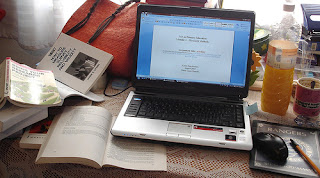 source
sourceAfter spending some time reading the tips of the University of Essex, I’ve come across a lot of useful suggestions on how to work out a method to evaluate online resources! Here is what I’ve come up with…
Well, if we have to do some research for our next thesis, a good way to start with is asking ourselves: where should we start looking? Is the information we are looking for only retrievable in the Internet? If this is the case, what we need is a good search engine…so we should forget Google or AltaVista as they give far too much information which might be misleading; in this case, what we need is a meta search engine (such as dogpile, search) or a specialized search engine (like Google scholar), which can refine the information retrieved in a more effective way! :-) Surprisingly, I found out that the University of Essex provides its students with free online services (like Intute), thanks to which they have access to the best web resources for education and research...great, isn't it?!
A criterion I’ve always followed is that of evaluating the credibility of a website as well: in each new website we come across we should check if the home page displays the name and the logo of the institution or organization who provided the information, and if the website is frequently reviewed by the editors. Therefore, it is always important to have a look at when the information was published and when it was last updated. So we’d better not use undated sites if we are looking for recent information! ;-) In addition, we should be capable of verifying the kind of information we are retrieving, i.e. if it is based on facts or on opinions, which is not always easy to establish when reading through online material.
The criterion of peer-evaluation was not unknown to me: anyway, I think it is essential in order to make sure of the quality of the information presented...Actually, I may trust more a website which has been highly rated than one which is not! ;-)
Bye girls, see you on Monday!

